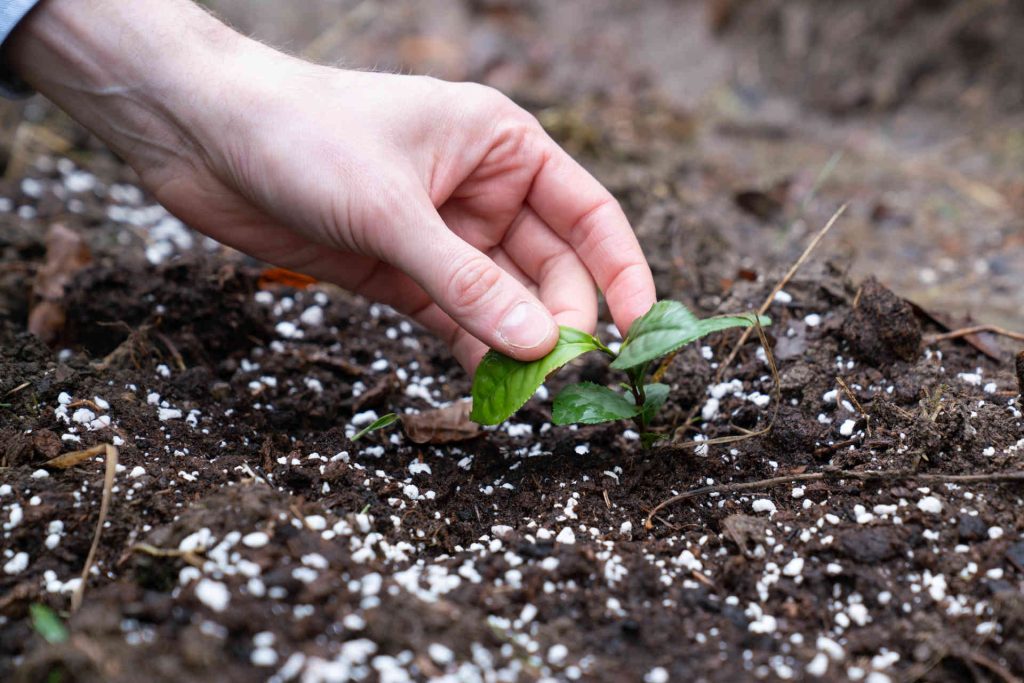
The fact that gastronomy and agriculture go hand in hand is certainly nothing new. But Klemens Gold has created something that is not commonplace in Austria in Pechgraben in Großraming: he has opened a tea garden. How local agriculture is opening up new opportunities for gastronomy.
“Nature-based cuisine” is the name of the game for Klemens Gold, formerly Schraml. For years, he honed his culinary skills in some of the best kitchens in Europe before returning to Upper Austria at the end of 2018 and establishing “Rau”, a fine dining hotspot for gourmets. Now you might think that Gold could be satisfied with gastronomy alone, there is enough to do. But the Upper Austrian has already proven in the past with his tea cellar and Combuchont that he also wants to get involved in the drinks market. So far, however, he has used teas from Taiwan, Japan, China and the Alps for this low-alcohol drink - with the emphasis on so far. This is because they have been growing their own tea plants in the garden for a good month now.
Tea plants grow particularly well where there is plenty of rainfall. If there is also sufficient shade, this also increases chlorophyll production and the tea has a particularly intense aroma. Gold has found such a “shady spot” in Pechgraben near Großraming, even if the “Camellia sinensis” is still exotic in our latitudes. “Farmers in the foothills of the Alps in particular, who have to contend with many areas that are difficult to cultivate - often shady, steep, damp and excluded from subsidies - can benefit from our approach. This is precisely where our social impact lies,” explains Gold. “We also want to help shape an agriculture that is adapted to climate change.” The project will also secure the raw material for the tea cellar in the long term, as it can now be sourced from a local farm. And further: “Tea has the potential to enrich the pre-Alpine cultural landscape not only in terms of taste, but also ecologically.”
The Zillertal restaurant “Guat'z Essen” also focuses on products from its own farm: At Peter Fankhauser's restaurant, the good things are actually very close by, namely in the permaculture garden next to the vegan-vegetarian restaurant. The cool and harsh climate in Stumm may make some things grow more slowly, but the taste is always impressive. Good things take time and bring some rarities to the plate that you wouldn't otherwise get between your teeth - whether it's a leaf or a root.
And the same applies here as in Großraming: you want to be well prepared for the future. There is no short-term exploitation of the soil in a permaculture garden; the focus is on a natural cycle. “We leave our vegetables to nature,” says Fankhauser. “In order to survive, they have to struggle a little, but their taste is very intense and therefore unmistakable.” The cycle is closed by processing food waste from the restaurant into compost and then reusing it as fresh, healthy soil for the raised beds.
Whether in Klemens Gold's shady tea garden in Großraming or in Peter Fankhauser's permaculture system in Stumm: restaurateurs who rely on local self-sufficiency not only secure high-quality raw materials and diverse flavors, but also actively help shape a sustainable, climate-resilient future. The close collaboration with agriculture not only offers culinary added value, but also ecological perspectives - an approach that sets an example.

When the new France edition of the Michelin Guide is presented on March 16, 2026, the international gourmet scene will turn its attention to Monaco for the first time. The Principality will host the official ceremony – a first in the history of the restaurant guide. The venue will be the Grimaldi Forum Monaco, organized as part of a joint initiative between the Principality of Monaco and Monte-Carlo Société des Bains de Mer, which is acting as the exclusive partner.
It is more than a cookbook. Kanaan – Cooking without borders is a manifesto for understanding, compassion, and what good food has always been able to do: bring people together. Every day at the Kanaan restaurant in Berlin, Israeli Oz Ben David and Palestinian Jalil Dabit demonstrate that cuisine speaks a universal language – and that where there is cooking, understanding begins.
INFO
Kanaan – Cooking Without Borders
Authors: Oz Ben David, Jalil Dabit
Photography: Elissavet Patrikiou
Publisher: Südwest Verlag
Length: 192 pages
ISBN: 978-3-517-10429-4
Price: €28.00 (Germany) / €28.80 (Austria) / CHF 38.50
Las Vegas is known for its long nights, which makes places that do mornings really well all the more important. Between the Strip and downtown, there are a surprising number of spots where breakfast and coffee are not just an afterthought, but are deliberately celebrated. It’s these places that make all the difference: quiet, high-quality, and offering just the right amount of enjoyment before the day gets going.


The fact that gastronomy and agriculture go hand in hand is certainly nothing new. But Klemens Gold has created something that is not commonplace in Austria in Pechgraben in Großraming: he has opened a tea garden. How local agriculture is opening up new opportunities for gastronomy.